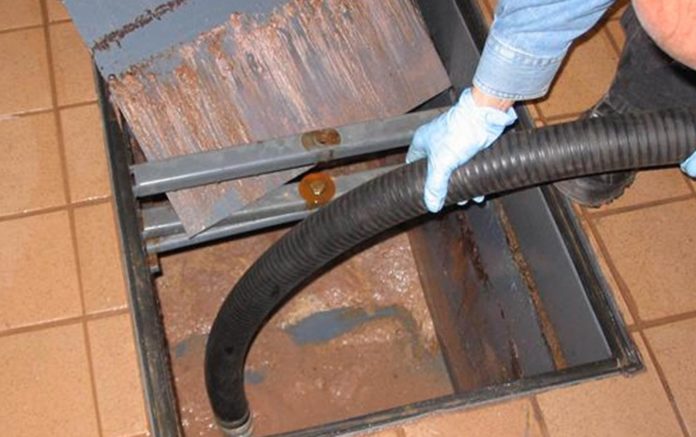
Owning a restaurant or any other foodservice establishment requires the installation and use of certain devices in the kitchen. Anyone who has ever worked in the service industry is probably quite familiar with a device known as a grease trap and has most likely experienced the disadvantages it brings along if it is not cleaned regularly and properly. And while at home, individuals can try cleaning it on their own, it is a difficult and time-consuming task that is best left to the professionals. This is why commercial establishments that use grease traps should always hire a cleaning service to do the job.
These devices are also often referred to as grease interceptors and businesses are required by law to install them into their kitchens. They offer many advantages, not to mention they are great for the environment too.
With proper care and regular maintenance, they will serve you a long time, but if you are unfamiliar with what they are exactly, how they work, and why cleaning them is of utmost importance, here is everything you need to know.
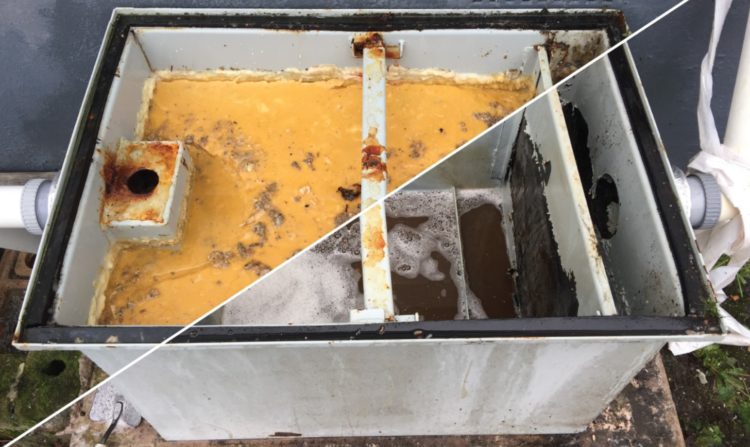
What Is It & How Does It Work?
A grease trap or interceptor is a plumbing device designed to trap fat, oil, and grease collectively referred to as FOG and prevent them from entering and clogging pipes and sewers. These devices have been around for a very long time with very little changes to the mechanics behind them.
The traps mainly use the rules of gravity to trap not only FOG but also chunks of food and they are a basic part of any food establishment’s sanitary system. Since oil and grease float atop of water, this is the main principle these machines were constructed upon.
Using only a couple of mechanical components such as a reservoir and water pump, they allow the water to cool down and settle before releasing it through a pipe and into the sewer. In the meantime, it traps FOG by letting it rise to the top of the reservoir while the chunks of food sink to the bottom. And although the water that remains in the middle might still contain some grease, the majority of it, about 90%, will remain in the tank.
Does it Prevent Clogs and Blockages Completely?
Logically, clogs or blockages will only occur if one does not clean the trap often enough and properly. Although commercial machines can hold a lot of waste, they might need a thorough cleaning every month or at the very least, every 90 days, mostly depending on the reservoir size and how often the device is used.
It might be a good idea to create a weekly or bi-weekly check-up schedule to monitor how full the tank is. Optimally, once about 25% of it is filled with FOG, one should contact a commercial grease trap service.
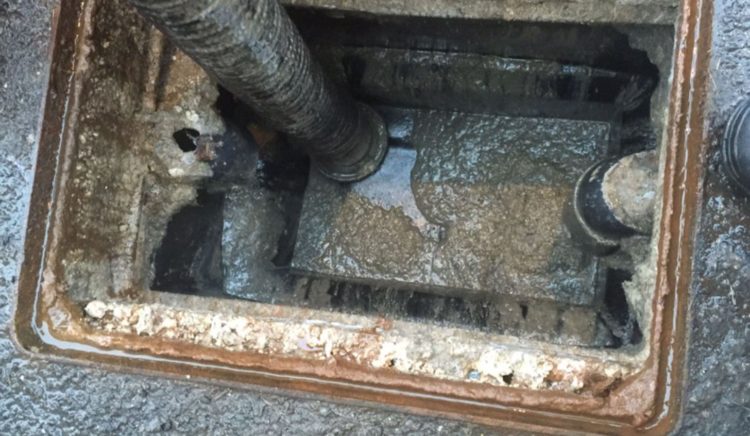
Is Hiring a Commercial Service Truly Necessary?
Unless you have the experience, time, and the right tools for the job, hiring a team of professionals is the best thing you can do. Just like with the installation, they are trained and equipped with the necessary skills to quickly and effectively get the job done.
You can visit houstontxgrease.com if you are interested in learning more about the types of services these companies offer.
Why is Regular Maintenance Crucial?
There are several reasons why this is important. These reasons include:
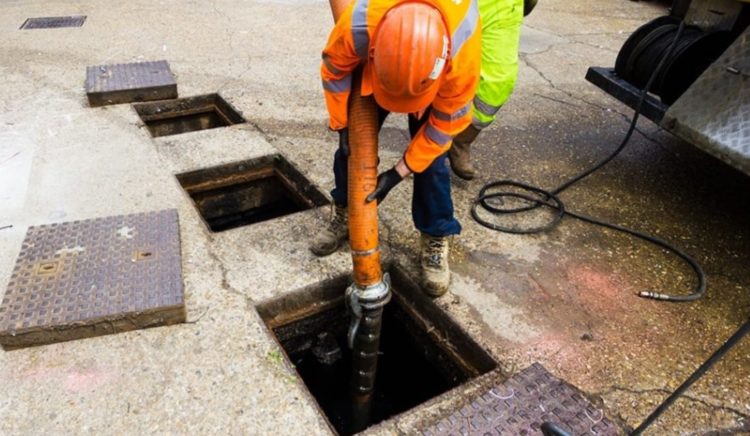
1. The Prevention of Clogs & Blockages
The more waste piles up, the higher the chances of clogs or drainage system blockages are. Moreover, it will also send more chunks and FOG through the pipe and into the sewer, eventually slowing down the entire system. Over time, this might lead to waste back-up and overflow, causing issues and expensive damages to your establishment.
2. Avoiding Foul Odors
Food and waste decomposition is a natural process and once it starts happening, smells that are far from pleasant start to spread, even when it is happening underground and not inside the tank. Besides being bothersome and unsanitary for the workers, the nasty odor can soon begin to spread throughout the restaurant.
Not only will you start losing customers but your establishment’s reputation might also face irreversible damage. This is something you will want to avoid at all costs since it can leave long-lasting negative effects on your business.
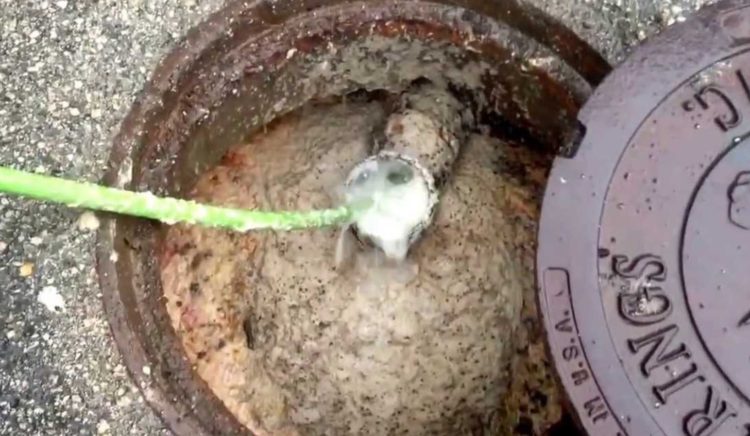
3. Making it Easier to Clean
The longer the waste sits in the reservoir, the more it will harden, eventually sticking to the bottom strongly. This will make cleaning it almost impossible, drastically reducing the capacity of your tank, not to mention it is also quite unsanitary.
4. Bypassing Unnecessary Expenses
Waste contains a variety of chemicals that can become harmful as they start decomposing. These substances can also lead to tank corrosion which then leads to leakage, meaning you will have to replace your device and spend money on something you could have easily avoided with regular maintenance.
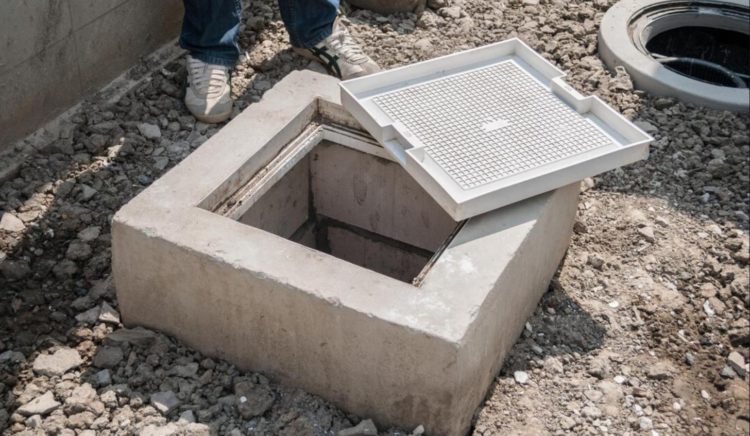
5. Avoiding Penalties & Losses
Individuals will have to pay fines for violating laws that are based on the number of committed offenses. What’s even worse, if any of the neighboring properties have suffered any damage, for example, due to sewer backup, the person at fault will be required to pay for all the necessary repairs.
In the worst-case scenario, a business’s operations can be temporarily suspended or in the most extreme cases, business owners can lose their licenses.
6. Preventing Pollution
The chemicals released by stagnant food waste isn’t only detrimental to the machine’s tank, but also the environment, especially animal life. Additionally, preventing it from entering the sewer system is also important for public health and safety, not to mention that it will also prevent the formation of harmful bacteria.
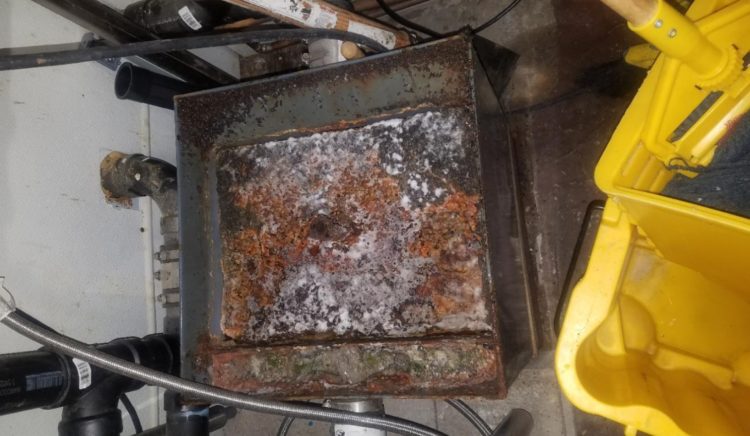
Conclusion
Cleaning a grease trap properly requires appropriate tools and this is exactly why hiring a service to do the job is the best decision you can make. Moreover, these professionals have the proper training to finish everything efficiently, saving you time and money in the process.
Regular maintenance will help you avoid unnecessary issues and ensure that your business is following all the codes and regulations it has to as well. This will keep your working environment sanitary and safe, protect your reputation and keep your business running efficiently and smoothly in the process too.











